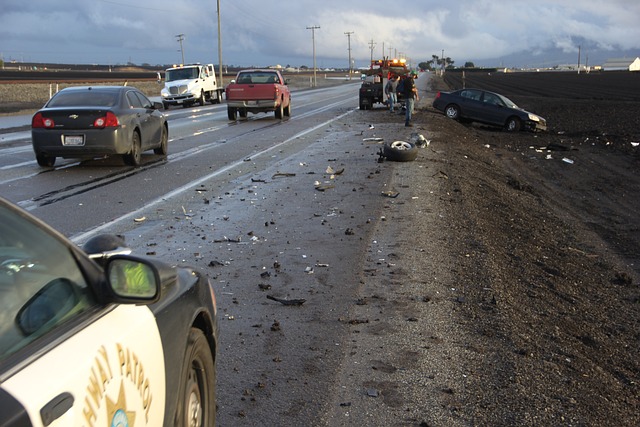A car crash, regardless of severity, can have substantial health impacts, some of which may be long-lasting or permanent. Understanding these potential impacts can be key in navigating the road to recovery. In this document, we will delve into various health consequences of car accidents, ranging from immediate physical injuries to long-term psychological effects. The aim is to equip readers with information that can help them better manage their recovery process and seek appropriate medical and psychological support when necessary.

Physical Injuries
Physical injuries are the most immediate and apparent consequences of a car crash. They can range from minor cuts and bruises to major traumas like broken bones, head injuries, or spinal cord damage. In addition, soft tissue injuries and whiplash can also occur in common car accidents, leading to long-term discomfort and mobility issues. Timely medical intervention is crucial to limit complications and enhance recovery, as it can help prevent chronic pain and ensure a smoother rehabilitation process.
Psychological Trauma
Psychological trauma following a car crash can manifest in various forms such as anxiety, depression, or Post Traumatic Stress Disorder (PTSD). It is crucial for individuals experiencing these challenges to seek appropriate psychological support and therapy to effectively overcome the lasting effects of the trauma and rebuild their mental well-being. These mental health issues can significantly impact the victim’s daily life, affecting their ability to work, engage in social activities, and maintain relationships.
Legal Support
Engaging legal support in the aftermath of a car crash can significantly alleviate the stress of dealing with insurance claims, medical bills, and potential lawsuits. Experienced car accident lawyers can provide guidance through these complex processes, ensuring that victims secure their rightful compensation for the damages incurred. This can take into account medical expenses, rehabilitation costs, lost wages due to inability to work, and even non-economic damages like pain and suffering. By hiring a lawyer, victims can focus on their recovery while the attorney manages the legal aspects of the accident, advocating for their rights and interests.
Chronic Pain
Chronic pain is another common issue that car accident victims often face. Especially in cases of severe injuries, persistent pain can significantly affect the quality of life, making it challenging to perform daily activities and impeding the ability to enjoy life to the fullest. As a result, individuals may require long-term pain management strategies to cope with the ongoing discomfort and regain a sense of normalcy.
Mobility Issues
Serious accidents can have a lasting impact on mobility, stemming from physical injuries or the fear of movement in the aftermath. This can create significant challenges for individuals as they strive to regain their former level of mobility and confidence. By combining physical therapy to address the physical aspects and psychotherapy to address the mental and emotional components, individuals can work towards regaining mobility and enhancing their overall well-being. It’s important to recognize that the journey to recovery is often a complex and multifaceted process, involving not only physical and mental aspects but also social and environmental factors. Support from family, friends, and community resources can play a crucial role in helping individuals navigate these challenges and rebuild their lives.
Cognitive Impairments
Head injuries, whether from accidents or sports, can have significant impacts on cognitive functions such as memory, concentration, and decision-making abilities. These cognitive impairments can greatly affect an individual’s daily life and overall well-being. However, with the help of cognitive rehabilitation therapies, individuals can work towards improving these conditions over time, enabling them to regain a sense of normalcy and independence in their daily activities. It’s essential to approach cognitive rehabilitation holistically, considering not only the specific cognitive deficits but also the individual’s overall lifestyle and environment. This comprehensive approach can facilitate a more effective and sustainable recovery, empowering individuals to overcome cognitive challenges and lead fulfilling lives.
Emotional Distress
Emotional distress is a common yet often overlooked consequence of car crashes. The aftermath of such incidents can lead to a range of emotions, including fear, anger, guilt, and sadness. These feelings can have a significant impact on individuals’ mental well-being, and it’s important to address them through counseling, therapy, or participation in support groups. Seeking professional help and finding a supportive community can play a crucial role in the recovery process for those who have experienced the emotional toll of a car crash.
Impact on Quality of Life
The overall quality of life can be significantly impacted by a car accident. This includes limitations in daily activities, changes in relationships, and potential job loss, which can lead to emotional and financial stress. Coping strategies and support systems are crucial in managing these changes, such as seeking professional help, connecting with support groups, and finding new ways to adapt to the challenges that arise. It’s important to recognize the long-term effects and seek the necessary assistance to navigate through the difficult period after a car accident.
The Importance of Support
Navigating the recovery process post-accident can be incredibly challenging. Whether it’s recovering from physical injuries or dealing with the emotional impact, having a strong support network is crucial. This network might include medical professionals providing expert care, therapists offering guidance and support, as well as unwavering love and encouragement from family and friends. Their collective support can make a significant difference in the recovery journey, helping individuals navigate the difficult road to recovery with more strength and resilience.

The road to recovery following a car crash is a multi-faceted journey that encompasses physical, psychological, and legal aspects. The aftermath can have a profound impact on an individual’s life, affecting their health, mobility, cognitive abilities, emotional well-being, and overall quality of life. However, with a comprehensive network of support—spanning from medical and legal professionals to family and friends—and effective coping strategies, individuals can navigate the challenges that arise, gradually regaining their sense of normalcy and rebuilding their lives. It’s pivotal to recognize the importance of each aspect of recovery and to take proactive steps toward physical healing, psychological resilience, legal justice, and ultimately personal growth. Remember, the journey might be arduous, but with the right support and resources, recovery is feasible and within reach.


